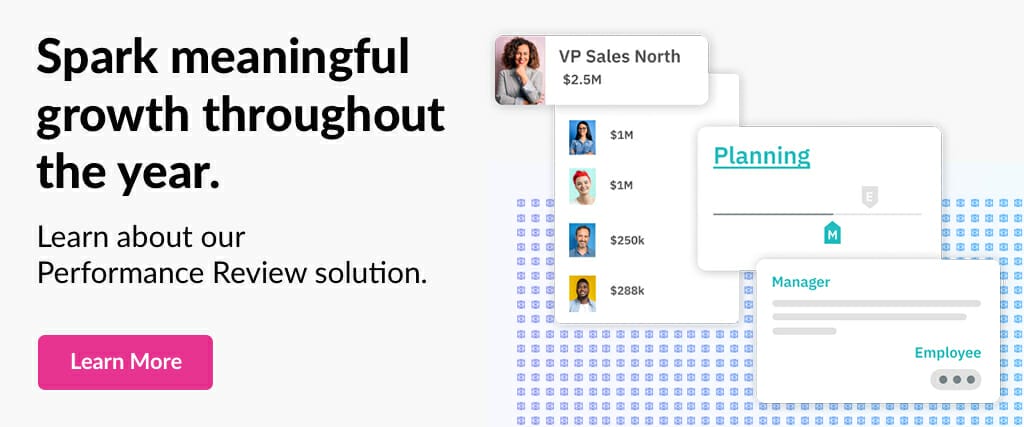Employee Performance Review Soft Skills Comment Examples

Performance review sample comments examples for soft skills help managers provide coaching to improve growth and development during the review cycle. Soft skills are vital in every industry, as they represent the non-technical abilities and personal attributes that contribute to professional success. These skills influence how individuals communicate, collaborate, solve problems, and adapt to workplace challenges. To guide employees and managers in understanding and evaluating these essential competencies, we’ve highlighted the top 10 soft skills most valued in today’s workplace.
For each, we offer detailed descriptions and performance review soft skills comments that illustrate varying levels of proficiency. These comments are organized on a scale from 1 (Below Expectations) to 5 (Truly Outstanding), allowing for nuanced evaluations that reflect the employee’s capabilities.
This resource is particularly valuable for employees aiming to refine their skills and for managers tasked with evaluating and fostering these qualities within their teams. Using this tool, managers can provide constructive feedback and set clear expectations for growth. For employees, the examples can serve as a roadmap for self-improvement and career development.
While the sample comments are generic, they are intended as a starting point. It’s crucial to customize performance reviews to align with each employee’s role, responsibilities, and individual contributions. By leveraging this resource, organizations can promote continuous learning, foster meaningful growth, and build a workplace culture that values both personal and professional development.
| Skill Name | Skill Description | Below Expectations (1) | Meets Expectations (2) | Exceeds Expectations (3) | Greatly Exceeds Expectations (4) | Truly Outstanding (5) |
|---|---|---|---|---|---|---|
| Communication Skills | Ability to effectively convey and receive information, both verbally and in writing. | Struggles with clear and effective communication. | Communicates clearly but can improve in engaging listeners. | Communicates effectively and expresses ideas clearly. | Excels in communicating complex ideas clearly and persuasively. | Masterful in communication, setting a high benchmark. |
| Teamwork and Collaboration | Capacity to collaborate efficiently with others and work well in a team setting. | Frequently faces challenges in collaborating with team members. | Works in a team but occasionally exhibit difficulties in collaboration. | Regularly contributes to the team and helps achieve goals. | Exemplary team player who enhances group dynamics. | Transformative in teamwork, fostering an exceptional team environment. |
| Adaptability | Skill in adjusting to new conditions, challenges, and opportunities. | Has difficulty adapting to new situations or changes. | Generally adapts to new situations but can struggle with significant changes. | Adapts well to new challenges and is flexible. | Quickly and seamlessly adapts to significant changes. | Thrives in all situations and inspires others to excel. |
| Problem-Solving | Proficiency in identifying issues and implementing effective solutions. | Often unable to identify problems or propose suitable solutions. | Able to solve problems but may take time or need guidance. | Shows problem-solving solid skills with minimal guidance. | Displays exceptional problem-solving skills. | Superior problem-solving abilities, making critical contributions. |
| Critical Thinking | Ability to think clearly and rationally, understanding the logical connection between ideas. | Struggles with clear and rational thinking. | Displays basic critical thinking but lacks depth. | Displays good critical thinking skills. | Demonstrates excellent critical thinking abilities. | Exhibits unparalleled critical thinking, impacting strategic decisions. |
| Emotional Intelligence | Capability to be aware of, control, and express one’s emotions judiciously and empathetically. | Has difficulty in understanding and managing emotions. | Generally understands emotions but struggles with empathy. | Demonstrates awareness and control of emotions effectively. | Shows high emotional intelligence in various situations. | Embodies exceptional emotional intelligence, influencing positively. |
| Creativity and Innovation | Talent for thinking outside the box and generating innovative ideas or solutions. | Rarely demonstrates creative or innovative thinking. | Sometimes demonstrates creativity but lacks consistency. | Frequently displays creativity and innovative thinking. | Consistently generates innovative ideas and solutions. | Pioneers in creativity and innovation, setting industry standards. |
| Time Management | Skill in managing one’s time effectively and efficiently, prioritizing tasks. | Poor at managing time and prioritizing tasks. | Manages time adequately but can improve in prioritization. | Effectively manages time and prioritizes tasks. | Outstanding in time management and task prioritization. | Exemplary time management, leading by example. |
| Leadership | Competence in guiding and motivating a team towards a common goal. | Struggles to lead the team effectively. | Shows basic leadership skills but lacks consistency. | Consistently motivates the team and shows leadership qualities. | Inspires and guides the team to new heights. | Embodies exemplary leadership, profoundly influencing the team. |
| Conflict Resolution | Capacity to manage and resolve disagreements or disputes effectively. | Often unable to resolve conflicts effectively. | Adequate at resolving conflicts but lacks finesse. | Effectively resolves conflicts with good outcomes. | Resolves conflicts with exceptional skill and diplomacy. | Expertly manages conflicts, ensuring long-term positive outcomes. |
Employee performance evaluation comments based on ratings
| Skill Name | Skill Description | Below Expectations (1) | Meets Expectations (2) | Exceeds Expectations (3) | Greatly Exceeds Expectations (4) | Truly Outstanding (5) |
|---|---|---|---|---|---|---|
| Active Listening | The ability to fully concentrate, understand, respond, and remember what is being said. | Struggles to pay attention during conversations. | Listens but may not fully understand or remember conversations. | Good listener and usually remembers details from conversations. | Excellent listener who actively engages and provides feedback. | Masterful in active listening, capturing and synthesizing information effectively. |
| Resilience | Capacity to recover quickly from difficulties and adapt to change. | Easily overwhelmed by challenges, showing little resilience. | Copes with difficulties but may be slow to adapt to change. | Shows resilience and adapts to changes with minimal difficulty. | Highly resilient, adapts quickly and effectively to change. | Exemplifies resilience, thriving on challenges, and leading through change. |
| Attention to Detail | The ability to focus on the specifics of a task and execute it with accuracy. | Often overlooks key details and makes frequent errors. | Generally attentive to details but may miss important points. | Pays close attention to detail and rarely makes mistakes. | Exceptional attention to detail, ensuring high-quality work. | Unparalleled attention to detail, setting a standard for accuracy and precision. |
| Self-Motivation | Drive to achieve goals with minimal external encouragement. | Lacks self-drive and requires constant direction. | Usually motivated but occasionally needs external encouragement. | Self-motivated and consistently drives toward goals. | Consistently self-motivated, requiring no external encouragement. | Innate self-motivation, consistently exceeding goals with exceptional drive. |
| Empathy | Understanding and sharing the feelings of others. | Struggles to understand others’ feelings and perspectives. | Sometimes shows understanding of others’ emotions. | Regularly demonstrates empathy and understanding. | Demonstrates a high level of empathy, fostering strong relationships. | Embodies empathy, deeply connecting with and understanding others. |
| Cultural Awareness | Awareness and respect for cultural differences in the workplace. | Shows limited understanding of cultural differences. | Basic awareness of cultural differences but room for improvement. | Shows respect for cultural differences and promotes inclusivity. | Highly aware of and responsive to cultural differences. | Culturally astute, enriching the workplace with deep cultural insights. |
| Persuasion | Skill in convincing others to understand and agree with your viewpoint. | Has difficulty in influencing or persuading others. | Able to persuade others, but not consistently effective. | Effectively persuades others most of the time. | Skilled at persuading others and often influences decisions. | Exceptional persuasiveness, consistently steering successful outcomes. |
| Flexibility | Ability to adapt to new challenges and changes in the environment. | Struggles to adapt to new situations or changes. | Adapts to change but not always comfortably or quickly. | Flexible in most situations and adapts well to change. | Very flexible, easily adapting to new challenges and environments. | Exemplary flexibility, effortlessly adapting to the most challenging changes. |
| Decision Making | Proficiency in making choices that lead to favorable outcomes. | Often makes poor decisions or avoids decision-making. | Makes acceptable decisions but can improve in decision-making skills. | Usually makes good decisions and is decisive when needed. | Consistently makes sound decisions with confidence. | Decisive leader in decision-making, often making breakthrough choices. |
| Stress Management | Capability to handle stress effectively and maintain performance under pressure. | Easily stressed and unable to perform well under pressure. | Manages stress adequately but can be overwhelmed in high-pressure situations. | Handles stress well and maintains performance under pressure. | Effectively manages high levels of stress, maintaining excellent performance. | Unfazed by stress, excelling under any pressure with superior performance. |
This resource provides a clear and detailed overview of essential soft skills, including their descriptions and performance review comments tailored to various professional competencies. For more insights, we encourage you to explore our additional pages, which cover a wider range of skills, including technical and leadership abilities.
These resources are designed to offer numerous performance review examples, enabling thorough and effective evaluations. Whether you’re focused on enhancing your team’s capabilities or advancing your own, these tools are invaluable for fostering continuous professional growth and achieving excellence.
Other Sample Comments:
- Banking and Financial Services Technical Skills Examples
- Construction Technical Skills Examples
- Customer Service Technical Skills Examples
- Energy Technical Skills Examples
- Hardware Technical Skills Examples
- Healthcare Technical Skills Examples
- Hospitality Technical Skills Examples
- Information Technology Technical Skills Examples
- Insurance Technical Skills Examples
- Leadership and Management Skills Examples
- Media and Publishing Technical Skills Examples
- Pharmaceutical Technical Skill Examples
- Professional Consulting Skills Examples
- Real Estate Technical Skills Examples
- Retail Technical Skills Examples
- Supply Chain Technical Skills Examples
- Telecommunication Technical Skills Examples
To learn more about our performance review soft skills samples, request a demo.
Why Job Roles Matter to Employees in Business
Job roles matter to employees in business because they provide clarity, purpose, and direction in their careers. A well-defined role helps employees understand their responsibilities and see how their work impacts the organization. This clarity gives them a sense of ownership and engagement by showing how their efforts align with broader company goals. Job specifications […]
Create Adaptability in the Workforce with Skills Training
As the ‘future of work’ begins to assume a more defined shape, the majority of employers are leaning towards training of their existing talent, rather than hiring, but skills development is not moving fast enough to keep up with demand. Ongoing upskilling and reskilling can help to offset the impact on your workforce from these fundamental changes. Understanding which training methods are the most effective for new skills acquisition is therefore paramount.
Reskilling and Upskilling: A Strategic Response to Changing Skill Demands
The 2018 Future of Jobs Report from the World Economic Forum predicts that 75 million jobs will be displaced by 2022 in 20 major economies. At the same time, 133 million new roles are expected to be created, driven by advances in technology and continuous digital transformation.
As demand for new capabilities gathers pace, reskilling and upskilling can enable your organization to develop the skills needed to remain competitive.




